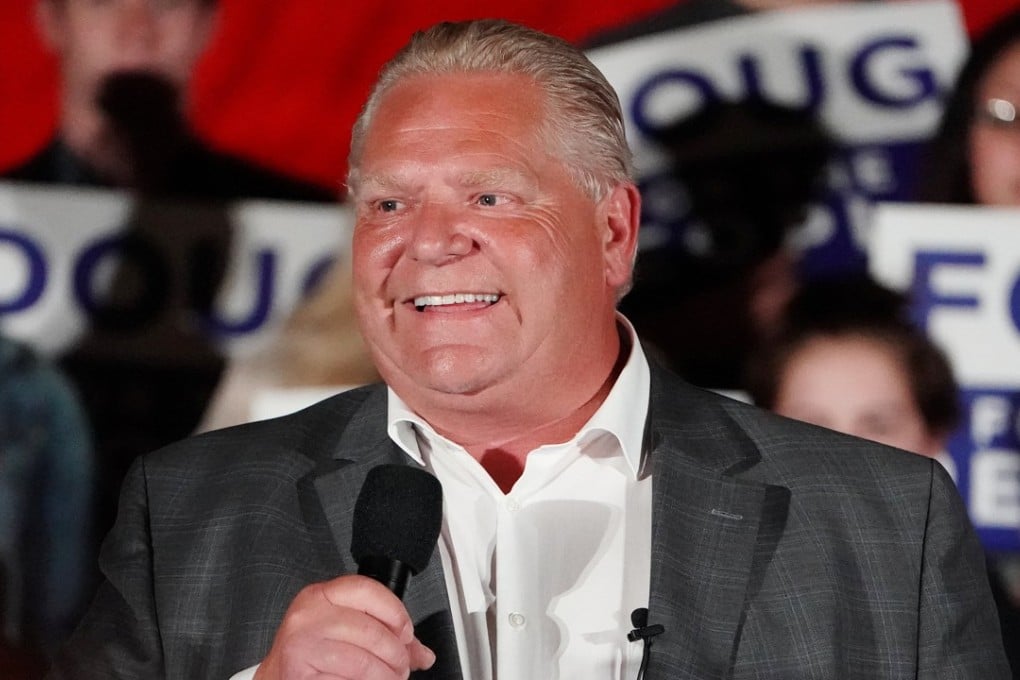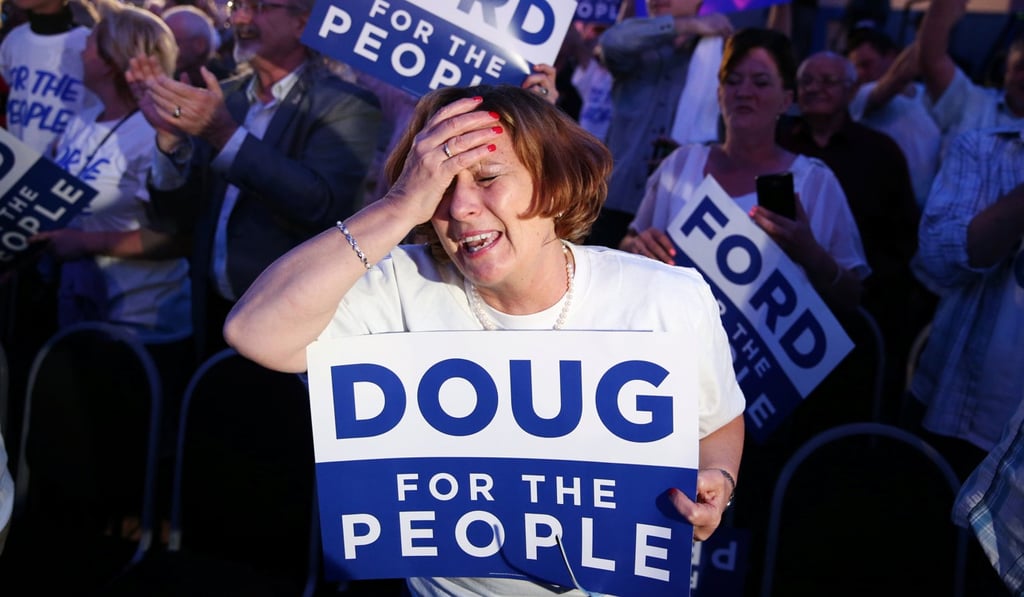Canada’s Trump: Doug Ford, populist brother of crack-smoking Toronto mayor Rob Ford, wins Ontario election
Doug Ford is projected to have secured a majority in Canada’s most populous province, ousting Premier Kathleen Wynne after 15 years of Liberal rule

Doug Ford, whose populist message of smaller government and tax cuts drew comparisons to Donald Trump, will be the next premier of Canada’s most populous province and economic engine.
Ford’s Progressive Conservatives were poised to win about 74 of Ontario’s 124 districts in Thursday’s election, according to unofficial results and projections from three television networks. Ford’s decisive win ends 15 years of Liberal Party rule, and his majority government will be able to run the province without the support of another party.
Ford, 53, a former city councillor and brother of the late Toronto mayor Rob Ford, ran on a “For the People” platform of tax cuts for businesses and the middle class, along with lower fuel and electricity prices. While the tax cuts, a pledge to reduce government “waste,” and his plain-spoken tone evoked elements of Trump, there are key differences: immigration played virtually no role in the campaign, and first- and second-generation Canadians are core supporters of the Ford family’s campaigns.
In his victory speech near Toronto, a beaming Ford declared Ontario is “open for business,” pledging his government will usher in “an era of economic prosperity the likes of which Ontario has never seen before.”

It’s not clear how Ford will fund his promises, as the party didn’t release a fully costed plan.
“He ran a campaign of slogan,” said Chris Waddell, a professor at Carleton University’s school of journalism and communications in Ottawa.